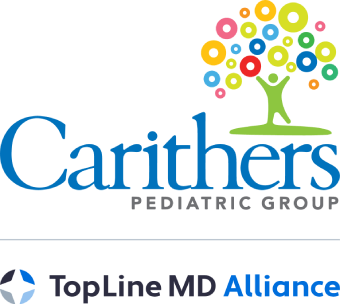August is National Immunization Awareness Month (NAIM), which is an annual observance to highlight the importance of vaccinations for children and people of all ages. We thought now would be the perfect time to talk about the vaccine-preventable diseases you protect your child against when you follow the CDC recommended Child & Adolescent Immunization Schedule.
Vaccine-Preventable Diseases to Immunize For
1. The Flu
Influenza, or flu, can be prevented by the flu vaccine. The flu can be spread through the air or via direct contact. Flu symptoms include fever, body aches, sore throat, cough, and extreme fatigue. Most otherwise healthy people will not experience lasting complications from the flu, but it can cause pneumonia and be potentially life-threatening for some. Because there are so many different strains of the flu, there is no guarantee you won’t get sick. However, getting a flu shot every year greatly decreases your chances of getting sick.
2. Chicken Pox
Chickenpox is caused by the varicella virus and can be protected against with the varicella vaccine. Chickenpox is spread through the air and direct contact with someone already infected. The hallmark symptoms of chickenpox are itchy rash, headache, fever, and fatigue. Potential complications of chickenpox include infected blisters, pneumonia, and brain swelling (called encephalitis).
3. Hepatitis A & B
The hepatitis A vaccine protects against the hepatitis A virus. This virus is spread through direct contact with an infected person or through contaminated food or water. Often, a person won’t notice any symptoms after they’ve been infected, but if they do those symptoms may include fever, loss of appetite, fatigue, jaundice, vomiting, and dark urine. The complications of Hepatitis A include liver failure, kidney disorders, pancreatic disorders, blood disorders, and joint pain.
Hepatitis B also has a vaccine. Hepatitis B can only be spread through contact with infected blood or bodily fluids. Symptoms include fever, headache, jaundice, weakness, and joint pain. Hepatitis B infection can result in chronic liver infection, liver failure, and liver cancer.
4. Polio
According to the CDC, the United States has been polio-free since 1979 due to a highly successful vaccination program that began in the 1950s. However, travelers from certain countries who come into the US have polio, so it’s important for children to get the IPV vaccine to protect against the disease. Polio may not cause any initial symptoms, but those infected may have a fever, sore throat, nausea, or headaches. The complications of polio are paralysis and death.
5. Measles
Measles is a vaccine-preventable disease that can be prevented with the MMR vaccine. It is spread via direct contact and through the air. Symptoms of measles include a rash, fever, cough, pink eye, and runny nose. It can result in brain swelling, pneumonia, and can even be fatal.
6. Mumps
Mumps is also protected against by the MMR vaccine. Mumps is spread through the air and by direct contact. The infection causes swollen salivary glands, fever, headache, muscle pain, and fatigue. Complications include meningitis, which is an infection of the protective covering around the brain and spinal cord. Other complications include inflamed ovaries or testicles and deafness.
7. Rubella
The third disease protected against by the MMR vaccine, rubella can cause a rash, fever, and swollen lymph nodes. It is spread through the air and direct contact. Rubella is most dangerous to pregnant women and causes miscarriage, stillbirth, premature delivery, or birth defects.
8. Tetanus
Tetanus is protected against by the DTaP vaccine, Tetanus is a disease that spreads through exposure through cuts or broken skin. The first symptoms of tetanus include stiffness in the neck and abdominal muscles, muscle spasms, fever, and difficulty swallowing. Tetanus can be fatal or cause breathing problems and broken bones.
9. Diphtheria
This vaccine-preventable disease is Also protected against by the DTaP vaccine. Diphtheria causes symptoms such as sore throat, a mild fever, weakness, and swollen glands. However, it can result in heart muscle swelling, heart failure, coma, paralysis, and death.
10. Pertussis
The third and final condition protected against by the DTaP vaccine is pertussis. Pertussis is a disease spread through the air and direct contact that causes a severe cough, runny nose, and apnea in infants. It can result in pneumonia and death.
11.Hib
Haemophilus influenzae type b (Hib) bacteria were once the leading cause of meningitis in children under 5 years old. Hib can also cause infections in the ears, lungs, blood, skin, and joints in children. Hib immunizations are usually given to babies starting at 2 months old with booster doses several months apart. The vaccine is not recommended for children over 5 unless they have a weak immune system.
Make an Appointment
The team at Carithers Pediatric Group is here to provide comprehensive care for your children at all stages of life. During this time, the safety of your family and our team members is of the utmost importance. Please read the Carithers Coronavirus Emergency Action Plan to stay up-to-date on our policies. If you have questions or want to make an appointment, call our Riverside office at (904) 387-6200 or our Southside office at (904) 997-0023.



